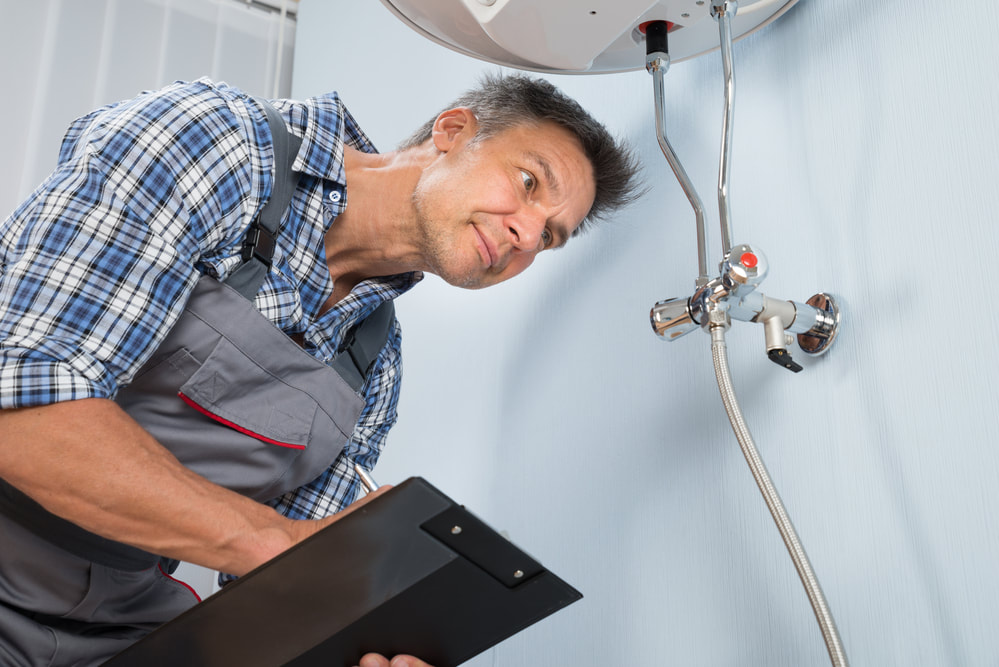But emotion shouldn’t cloud your judgment when it comes to making the biggest purchase of your life! That’s why you should have a home inspection contingency written into your contract.
More About the Importance of a Home Inspection Contingency
What Does a Home Inspection Cover?
Lasting between two to three hours, it’s a good idea for you, the buyer, to be present at the inspection. You can see firsthand what the inspector finds and get an explanation of findings.
This is also the time to ask questions! You’re making a big investment. Your inspector knows that and respects any and all questions you may have.
The inspector will note:
- If the problems found are a major or minor defect, or a safety issue
- If items need replacement, serviced, or repaired
- Items that are okay for now but will need attention in the future
The Exterior Home Inspection
If exterior walls are damaged, have cracks, or missing siding, your home inspector will note that in the report. If the soil is excessively close to the bottom of the house, the inspector will note it. This type of condition can invite termites.
Grading
Your home inspector will let you know if the grading slopes from the house are appropriate. If they aren’t, water could come inside and damage it.
Foundation
Usually, the foundation of the home isn’t visible. So home inspectors can’t examine it directly, but they can check for secondary evidence of foundation problems like cracks or settling.
Roof
If the roof was poorly installed or was damaged, the home inspector will find those problems and note them in the report. Such defects could cause water to get into the house. Improperly secured shingles as well as damaged or cracked mastic around vents are another area of concern. Gutters will also be checked.
Carport/Garage
The garage door opener will be tested for proper opening and closing. The garage framing will be examined to determine if there is proper ventilation to prevent accidental, but deadly, carbon monoxide poisoning.
If the garage houses the water heater, your home inspector will examine it to be sure it is installed high enough off the ground. The proper placement of the water heater is important to minimize the risk of explosion from gas fumes mingling with the heater flame.
The Interior Home Inspection
Once the exterior inspection is completed, the inspector will make a thorough inspection of the home’s interior. From ceilings to sinks, everything is examined!
Electrical
The inspector will tell you what kind of wiring the home has. All outlets will be tested, making sure there are fully functioning ground fault circuit interrupters installed in the kitchen, garage, bathrooms, and outdoors.
The electrical panel is also tested for safety issues.
HVAC (Heating, Ventilation, and Air Conditioning)
The inspector will have a thorough look at the HVAC system—the furnace, ductwork, the AC—to determine if both are functioning properly, and to give an approximate age of each.
You’ll also know if the house has sufficient insulation to minimize energy bills and if there is any asbestos insulation.
Bathrooms
Bathrooms are checked for adequate ventilation, visible leaks, and properly secured toilets. No windows in a bathroom can cause mold or mildew problems, so a ventilation fan is necessary.
Laundry Room
Laundry rooms must be properly ventilated to avoid becoming a serious fire hazard. Your inspector will check this.
Fire Safety
If the home you’re buying has an attached garage, the home inspector will need to examine the adjoining wall to make sure it has the proper fire rating.
And also, to ensure it has not been damaged in a way that could compromise the fire rating. Smoke detectors are also checked.
What’s Not Covered in a Home Inspection for the Buyer
But the inspector can give you visual clues like doors not closing properly or floors slanting. Without pulling up all the flooring, there’s no way to know for sure.
With that in mind, here’s what inspectors don’t look at:
- The inside of chimneys
- Inside of walls
- Behind electrical panels
- Inside sewer lines and pipes
Nor do they check for termite damage, mold, asbestos, or engineering problems. Most home inspectors are generalists. They can tell you that you might have a problem with wiring but will advise you to hire an expert to verify it.
The Benefit of Home Inspections
For large and small problems, you could also negotiate with the seller.
- Ask for a reduction in the purchase price
- Ask for a cash credit at closing to repair the problems
Bottomline. A home inspection contingency offers you legal protection in case the home has serious defects.
Are Home Inspections Worth It?
Just remember that no home is free of problems. It would be highly unusual for a home inspector not to find a problem with a home. That’s true even for new home builds!
And a home inspection isn’t always the determining factor for buying a home. If you know the home needs some renovations, a home inspection will help you determine what you need.
Conclusion
Include a home inspection contingency in your contract. Get the house checked out so you can feel confident and secure moving into your new home.
Lilly Title & Settlement is a woman-owned title company in Staunton, VA. We offer title insurance and real estate closings all over the area. If you have any questions about home owner’s title insurance or closing on a home, call us. We also have some great information on our website.

 RSS Feed
RSS Feed